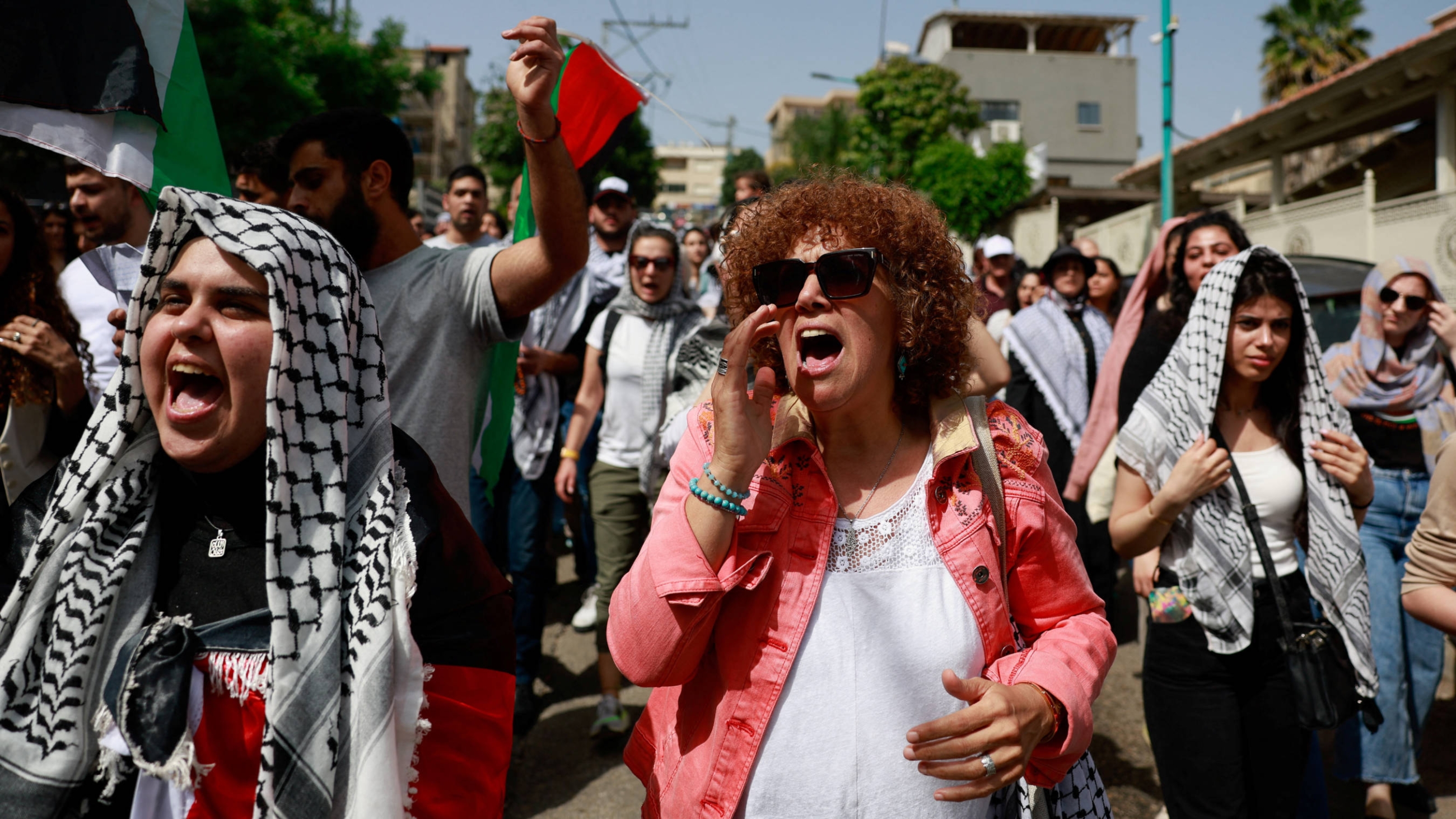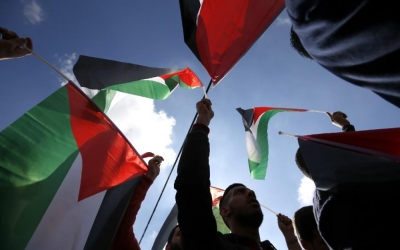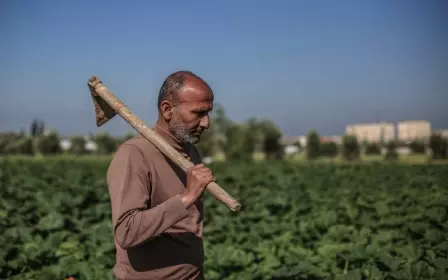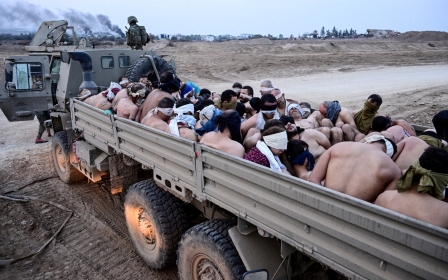Land Day: Palestinians mark 48th anniversary amid war, death and land theft

Palestinians this year mark the 48th anniversary of Land Day amid a brutal Israeli war on Gaza, near daily raids in the occupied West Bank, and an increase in land confiscation and settlement building.
On 30 March 1976, six Palestinians were killed by Israeli forces as thousands of Palestinian in Israel's northern Galilee region rose up in protest against the Israeli expropriation and occupation of Palestinian lands.
The event became known as Land Day and a symbol of national struggle that unites Palestinians around the world.
On Saturday afternoon, under the banner of "stop the war on Gaza", thousands of Palestinians marched through the Palestinian town of Deir Hanna, one of the towns in Israel where the most violent crackdown on protesters took place that day in 1976.
Land Day is also seen as significant because it is deemed to mark the first time that Palestinian citizens of Israel organised collectively against Israeli policies.
New MEE newsletter: Jerusalem Dispatch
Sign up to get the latest insights and analysis on Israel-Palestine, alongside Turkey Unpacked and other MEE newsletters
Palestinian citizens of Israel make up around 17.5 percent of the country's population and are descended from Palestinians who were not expelled by Zionist militias during the creation of Israel in 1948.
Palestinian protesters on Saturday also marched through the city of Sakhnin, in northern Israel, where three of the six Palestinians were buried almost five decades ago, Arab48 reported.
They then visited the family homes of Raja Abu Raya, Khader Khalayleh and Khadija Shawahneh, and laid wreaths on a monument honouring all six victims.
The other three Palestinians killed that day were Kheir Yassin, Mohsin Taha and Raafat Zuhairi.
"The most important thing that the martyrs gave on Land Day in 1976 was the belief in our right to our land," Ahmed, Khalayleh's brother, said in a speech at the cemetery.
From Sakhnin, the protesters marched to the cemetery in the neighbouring city of Arraba to pay tributes to Yassin.
Palestinians also paid homage to Zuhairi and Taha in their respective hometowns of Taybeh and Kfar Qana.
A relative of the martyr Khadija Shawahna, Wafa, said in her speech: "Land Day is a turning point in the history of our people. It is the departure from the machine of oppression, emergency laws, and military rule without fear, and today, after all these years, we are still suffering from emergency laws and military rule."
Since that day in 1976, Palestinians have engaged in widespread activities to commemorate Land Day and demand an end to the regime of racial discrimination - in particular, land and housing policies that have turned their towns into closed ghettos.
Demonstrations in cities around the world were also organised on Saturday, including in London, New York, Madrid, Rabat and Beirut.
Raids and land theft
As Palestinians prepared to commemorate this day, Israeli forces carried out several overnight raids across the West Bank, killing a 13-year-old boy, Nabil Abu Abed, in the town of Qabatiya, south of Jenin.
In Jericho, Israeli forces stormed the city in the morning, raiding several homes and interrogating residents. They also tightened military measures at the checkpoints set up at its entrances for the third consecutive day, denying movement of Palestinian vehicles into and out of the city.
Meanwhile, in a report released on Saturday, the Colonisation and Wall Resistance Commission (CWRC) said Israel has seized 27,000 dunums (27 sqkm) of Palestinian land in the West Bank since the start of the war on Gaza.
The CWRC, a governmental commission affiliated with the Palestine Liberation Organization, said that 1,895 settlement units have also since been approved by Israel, displacing 25 Bedouin communities from the Palestinian territory.
The report added that some 840 checkpoints and gates have been set up in the West Bank.
Israeli military has carried out 9,700 attacks against Palestinian residents and their properties, and have destroyed and uprooted 9600 trees, mostly olive trees, the report said.
Middle East Eye delivers independent and unrivalled coverage and analysis of the Middle East, North Africa and beyond. To learn more about republishing this content and the associated fees, please fill out this form. More about MEE can be found here.





